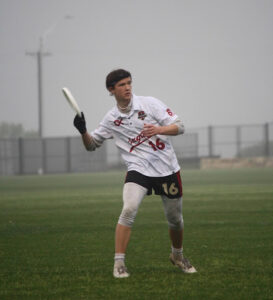I remember the day like it was yesterday.
My family and I are sitting in our living room, decked out in blue, all of our eyes locked on the TV screen. It is March 2008, and the University of Memphis is playing Kansas University in the NCAA Championship game.
Did we lose the title in overtime? Yes.
Yet that Memphis team represented one of the greatest times in the Bluff City. A time when the city rallied around a team and felt energized with life and love for the Tigers.
It was simply amazing.
Those moments planted seeds in me for a passion and love for sports and the way it breaks down barriers and brings people together, just like it did for the city of Memphis in 2008 and attempted to reignite in 2019.
In 2008, Memphis climbed to the mountaintop of greatness and glory; then, in 2009, the program fell straight into the valley.
It would take me more words than allotted me here to rant about the John Calipari debacle. Long story short, head coach Calipari played Memphis. The wins in 2008 were revoked and Calipari dashed off to Kentucky and took the recruits with him.
After sitting in the dark years, a long-awaited savior came to the University of Memphis: Penny Hardaway, the hometown hero.
He transformed a high school program—East High School in Memphis—started his own AAU league and coached top recruits. Players moved cities to play high school basketball for the great Penny Hardaway.
After many average and even failed seasons for the Tigers, a new beginning emerged in 2018. The city once again felt hope and rallied.
2019: Memphis and Hardaway recruited the No. 1 class in the nation. Players who Penny coached in high school all wanted to stay home in Memphis and play for him.
James Wiseman, the top recruit and No. 1 2020 NBA draft prospect, moved from Nashville to Memphis in 2017 to play high school ball for Hardaway. When he was a senior, he verbally committed to play basketball at Kentucky University under Coach Calipari. When Hardaway got the head coaching job at Memphis, he de-committed from Kentucky and instead signed to play at Memphis.
Finally, the tides have turned, and Memphis seems to be back on top for the 2019 season.
In Wiseman’s first regular season debut, he scored 28 points, grabbed 11 rebounds and had three blocks. The best debut by a freshman in Memphis history. Then, the bomb dropped.
“NCAA declares Wiseman ineligible.”
Boom.
The NCAA discovered in 2017 Hardaway gave Wiseman and his family $11,500 for moving expenses when they moved from Nashville to Memphis. At that time, Hardaway coached Wiseman in AAU and would be his high school coach. Hardaway was also classified as a booster after giving $1 million in 2008 to the university to build a sports hall of fame. Wiseman claims he had no knowledge of the payment.
Although Wiseman attempted to fight with a lawsuit at first, yesterday he retracted the lawsuit, officially became ineligible and filed for reinstatement. In the meantime, he practices with the team but cannot compete.
This represents a prime example of the inconsistency and flaws within the NCAA realm of punishment.
First of all, Hardaway donated money 11 years ago, when Wiseman was only seven years old. Is there some rule: once a booster, always a booster?
However, I understand the position of the NCAA. Hardaway gave money to a player to assist in his living situation. While there may be some fault here, this happens every single day within programs across the NCAA and no consistent punishment is dealt.
Did Wiseman’s family genuinely need help? Maybe. Was Hardaway bribing them to come to Memphis? Doubt it. Wiseman came seeking the best basketball opportunities to benefit his future, not to follow a money trail.
The NCAA singled out Wiseman; additionally, Wiseman says he did not know about the payment. If he did not know, can he be held liable for accepting it?
NCAA: you have some work to do.
Let Wiseman play. For the good of basketball and for the good of the city Memphis.
Oh, and because it is the right thing to do.














Be First to Comment